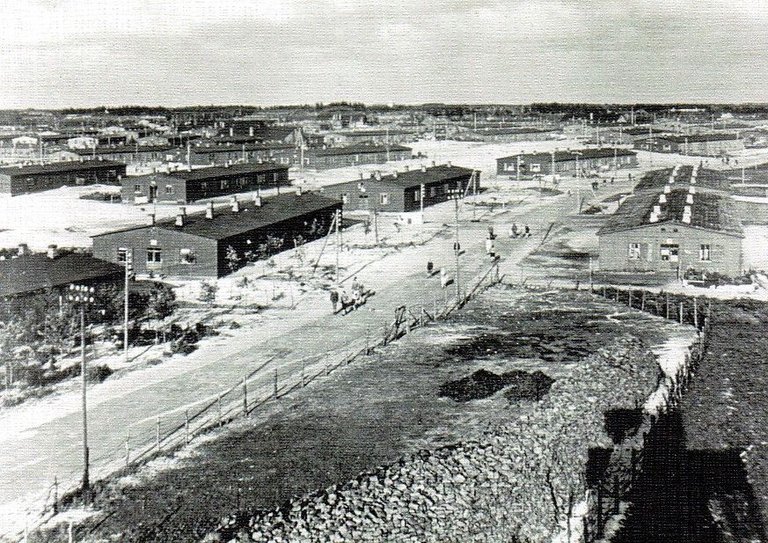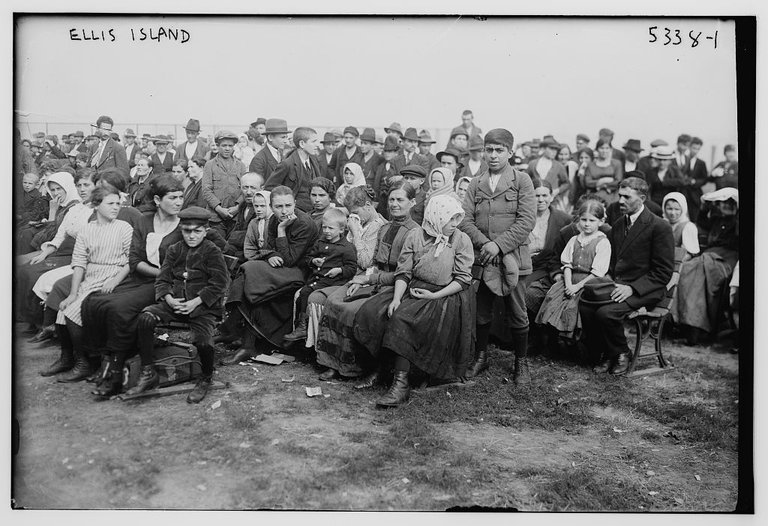The Immigration Conundrum
"...we risk becoming an island of strangers, not a nation that walks forward together": UK Prime Minister Starmer, May, 2025, in his White Paper describing planned curbs on immigration.
In June of this year anti-immigrant riots broke out in Northern Ireland in the town of Ballymena. According to a CBC report"...5,000 of the 31,000 residents were born outside of Britain, Ireland or Northern Ireland".
In May of 2024, the Copenhagen Post reported that 15 EU member states, led by Denmark, ..."issued a joint call to prevent migrants from arriving at EU borders..."
In September of 2024, the new French Foreign Minister Bruno Retailleau announced the goal of toughening border controls and imposing prison sentences on those who enter France illegally. Additionally, Retailleau described plans to strike a deal with North African nations to keep immigrants in Africa so that they could not cross into France in the first place.
In March of this year, French police evicted a group of approximately 400 immigrants who had been squatting in a Parisian cultural center. Demonstrators outside reflect the divisions in France over the immigrant issue. This YouTube video offers one view of the event.
And the US...there is a formal quota of 3000 immigrant deportations a day. Additionally, the borders to the U. S. have essentially been closed to new immigration.
This YouTube video offers a glimpse of ongoing protests in the U.S. over the Trump Administration's mass deportations of undocumented immigrants.
When speaking of national identity, how do we define ourselves? Who are we? Every nation certainly has a right, indeed an obligation, to act in its best interest. Sometimes the threat to national interest is clear--an armed invasion by an external force, for example. Sometimes that threat is not so clear. Immigration is one of those issues where the perceived threat to national identity varies by perspective and by circumstance.
Each of the four nations cited above at one time welcomed immigrants in large numbers. Both the UK and France welcomed immigrants after WWII.
Philippe Rygiel, of the Université Paris I Panthéon-Sorbonne/CNRS wrote in the The Encyclopedia of Global Human Migration (2013)
In march 1945, Charles de Gaulle, then head of the french government told the national assembly that France needed to introduce, with care (...), desirable immigrants into its midst, in order to rebuild the country and rejuvenate an aging population
In one of a series of articles published by Euronews, we learn of a France devastated by WWII. An estimated 400,000 buildings were destroyed and another 2,000,000 damaged. Infrastructure and agriculture were decimated. There was not enough food and no way to efficiently deliver whatever food there was to people that needed it.
Destruction in Brest, France, 1945

Ray Claxton. Public domain.
Immigration was the solution. France made it easy not only to immigrate but also to become a French citizen. Returning to the previous cited article by Phillipe Rygiel, the author states
The “ordonnances de 1945” created a state driven and controlled system of mass immigration that... recognized the right of most foreign workers, after a few years of stay, to sojourn permanently in France, opened access to citizenship to most of them and made most of their children french.
The UK likewise found itself, after WWII, in dire need of reconstruction. More than 2,000,000 homes needed to be rebuilt. 100,000 people were homeless in Belfast alone.
Liverpool, 1942, After German Blitz Bombing

UK Ministry of Information Photo Division. Public domain
There simply was not enough domestic labor to do the work. In 1948 the UK passed the Nationality Act, which gave immigrants from the widespread Commonwealth the right to live and work in the UK permanently. These people were already citizens of the United Kingdom and Colonies. These workers filled jobs that others could not fill and they became essential to post-war recovery.
Denmark's record in WWII stands apart from that of other European nations. It had signed a non-aggression pact with Germany before the war, which Germany promptly violated when the war started. When Germans invaded, the Danish government decided not to resist and until 1943 Germany occupied Denmark with relative ease. However a domestic resistance movement had developed and after 1943 the German occupation became more oppressive. Still, the country did not suffer the physical losses or even population losses experienced by the UK and France. After the war, though, Denmark opened its doors to several hundred thousand refugees from Germany who were fleeing the advancing Soviet army.
Refugee Camp in Oksbøl, Denmark, 1945

Unknown Author. Source:Leif Guldmann Ipsen: Menschen hinter Stacheldraht. Blavandshuk Egnsmuseum. Public domain.
Throughout the decades that followed, Denmark became a leader in offering humanitarian assistance to refugees from various global conflicts.
As for the U.S., WWII was largely fought abroad. The war actually represented a boon to the U.S. economy. It is even credited by some historians as being the push that put an end to the Great Depression. Immigration law, which in the U. S. had a history of being restrictive, was not much affected.
Over the years, throughout the country's history, the flow of immigrants to the U.S seesawed to regulate the numbers of people coming from different parts of the world. Historically this seesaw reflected national attitudes about race and national origin. All my ancestors were immigrants. In the early years this represented an open immigration policy (1600s,1700s, 1800s my paternal ancestors, northern Europe). In later years it reflected a more regulated policy (1906, my maternal ancestors, Sicily).
Immigrants at Ellis Island (Point of Entry in U.S), 1900

Bain News Service, publisher. Source: Library of Congress. Public domain
Restrictive immigration in the U.S. had begun in earnest in 1888 with the Chinese Exclusion Act...passed in response to Chinese immigrants who had come to the West Coast of the U.S. to help build the railroads. In 1924 restrictive immigration reflected a desire to keep out immigrants from southern Europe (my ancestors). In 1965, in yet another effort to control the type of immigrant allowed into the U.S., a law was passed that limited immigration from Latin America. This seems to have been the impetus for many undocumented immigrants from Latin America to come in as unskilled manual laborers. People continued to come over the border despite regulations.
Today
Today the four countries mentioned (and others across Europe) find themselves in a position of backlash against former immigration policies. Public sentiment against immigrants has swayed elections. Why?
Many answers to that question have been offered. I did a little reading to get an objective perspective on the issue. In the next few paragraphs I'll describe some of what I found.
An article (2020) published by Cambridge University Press entitled Terrorism and Migration: an Overview notes a relationship between the incidence of terrorist attacks and enactment of restrictive immigration policy. A relationship is not established (or is minimally detected) between the presence of immigrants and terrorist events. In other words, having more immigrants does not strongly correlate with having more terrorist attacks. However, having more terrorists attacks does strongly correlate with reducing immigration.
Thus, a rise in terrorism, or fear of terrorism, leads to a fear of and resistance to immigration.
A 2023 article in the Journal of International Migration and Integration correlates resistance to immigrants with a rise in nationalism. The authors write, "Nationalist sentiment is a driving force influencing negative attitudes towards immigrants..." 'Cultural patriotism' also correlates strongly with resistance to immigrants. The authors suggest (as a result of their research) that those who have a heightened sense of nationalism and cultural patriotism fear those values will be eroded by immigrants who do not share them.
Yet another article, by the European University Institute (Migration in European History), suggests that the rosy picture of post-WWII immigration reflected at the beginning of this blog is false. Immigration was never smooth. Populations that arrived were not integrated easily into society.
In describing labor migration from southern Europe to northern Europe in the decades following WWII, the authors write:
For a long time, the emphasis on the north-south divide of the labor recruitment has blocked other perspectives. Seen from a distance, it is certainly a common European experience, with repercussions to almost all European nations. All European receiving countries watched the establishment of diasporas, all European sending countries watched the investment of remittances and return migration, and both developments are part of the same process.
There is a particularly vile video I came across that illustrates the disdain northern Italians held for southern Italians, particularly Sicilians. Don't watch this if you are easily offended. I think I can safely say this narrator, in addressing immigrants from the south, demonstrates an egregious instance of cultural patriotism.
The article by the European University Institute also addresses specifically the immigration of immigrants from former French and English colonies in the decades after WWII. The introduction of these immigrants was not as seamless as some sources suggest. While the labor of the immigrants was needed, the receiving populations were not always gracious.
A...common feature is the difficult memory of...repercussions like the
establishment of anti-immigrant extremist political parties and the
challenges of ethnic diversity...into the historical narrative of the nations concerned.
Immigration is one of the most powerful political issues of our time. It has always apparently been an issue in politics and culture. It is also true that nationalism as a global movement is shaping the political character of many nations today, including the in U.S. and the three western European nations described in this blog.
Maybe the question should be not only why is immigration so important to people, but also why has nationalism grown to be so powerful? It may be that nationalism is driving the immigrant issue as much as anything else.
Conclusion
There you have it--another blog that has more questions than answers. Maybe in asking questions and thinking seriously about the issue we might better understand how we feel about it and why it drives so much of the current political and social discourse. I hope so.
Thank you for reading my blog. Peace and health to all.
This is a complex and difficult topic, and you have covered some of the overarching issues with immigration.
When I was in high school (Grade 10), my geography teacher gave us a newspaper article to read, it was called "Leave Your Baggage at the Door." In this article, the author argued that when you're accepted into Canada, then you should leave behind the troubles of your homeland, including crime, politics, bad behaviours, and so on. It's the same when someone invites you to their home. You don't go in and make a mess. You behave. The teacher then asked us to discuss the article and formulate an opinion. I would say 95% of the class agreed with the premise, and a few did not, arguing that as a multi-cultural society, Canada should allow you to keep your culture (good and bad).
I think that the teacher was surprised that we overwhelmingly agreed with the author. She did not argue with us but simply said, "hmmm..."
This was an interesting article that poses interesting questions about the mass movement of people across the globe.
I like the exercise the teacher offered the class. I used to teach social studies (geography/history/government) so I appreciate her approach: let the kids respond.
It is a complex issue. I'm what is known as a bleeding heart, but I don't believe in open borders. I think a nation needs to have a rational immigration policy. This includes room for refugees (screened for appropriate behavior) and family reunification. Beyond that, only those immigrants who will be an asset to the country should be allowed in. We need smart people, workers, exchange students.
For a couple of years I volunteered at a neighborhood outreach that tried to meet the needs of our local community and also the needs of immigrants who had entered the U.S. under Temporary Protected Status. The people I met were hard working and sought to assimilate into the U.S. culture--I even gave one woman English lessons.
It is a difficult issue. I didn't want to know if some of the people I helped were here without documents and some were here with protected status. They were just people, and on that level I wanted to help everyone.
However, as a country we can't help everyone. I believe, as many of your classmates did, that if you want to come to the U.S., then you have to learn our language, and learn our culture. You are welcome to keep your own, but only insofar as that does not conflict with the larger culture. That's what my forebears did. They treasured their native customs, but they assimilated and became truly citizens of their new country.
That's interesting volunteer work and definitely not easy given the wide array of issues surrounding immigration. Usually, a person doesn't leave their country because things are going well but because something is forcing them to move. Yet, there has to be balance, and a host country has to have an orderly process of entry.
Is there a single restriction on immigration that doesn't have racism and xenophobia at it's core? This country was founded by immigrants who paid no heed to the wishes of this continent's original inhabitants, seems a bit rich for their descendants to expect later arrivals to do any differently.
I don't have an answer. We're in a mess right now. Golden passports for millionaires. White refugees from South Africa. Tax-paying long-term residents snatched on the streets and disappeared.
On the other hand, I don't think open borders would work for us...as they didn't for the indigenous people who were here before Europe discovered this continent.
I don't know what the rules would be, and who would make them, but right now we're in a mess and the people in charge certainly would not be interested in making rules that were free of racism and xenophobia.
This is a thorny issue for sure.
I am supportive of legal immigration. Come here announced, the right way and with a decent background with no gangs or violence (a fist fight doesn’t count IMO, but attempted murder? No thanks) in the record and I’m all for it. We need people of all stripes, backgrounds and abilities to keep this thing going.
Where it gets squirrelly.. when it’s used as a political tool, both for the modern liberals and conservatives (emphasis on modern, classical liberals would be appalled lol I imagine John Locke seeing what we call a liberal now..). The liberals think we should be wide open, no restrictions and the conservatives think we should be completely closed.
I think we need to get back to sensible immigration but it will never happen because it’s such an easy and convenient tool for division agendas and politics. Division is the easiest form of control and it’s unfortunate that people don’t realize it for what it is.
The situation in places like Ireland and Britain is that the people are brought in, don’t assimilate to the culture of the place they are going (with caveats of course but there is well known rape culture in the middle eastern and northern African countries sadly, and it is being fomented on the people of the region) and then try to change the place to be like how it is where they came from.
There’s a lot of things in between there but I think this is also a tool used for division politics. It’s no secret how much money the ilk of Soros are dumping into the Open Society related foundations and the destruction that occurs after they get going in an area.
I think that’s a good spot to pause and see what your thoughts are :D
Oh yes. Politicians play us like a fiddle..if we let them. They do this by appealing to the baser parts of our nature.
Yes! Immigration made this nation great. Anyway, go back far enough in any country's history and you will not find a homogeneous past. People have wandered across the face of the earth from the very beginning.
And of course there have to be rules. Who will make them? Just another political football.
I'm so tired of the different sides...liberals, conservatives. Right, left. Soros, Koch. Red flags, waved to get our attention, to mold us, direct us, get from us what they need.
I'm tired of the anger and the hate.
To go back to immigration. We need the labor. We need the ideas. We need the diversity. We also need to show compassion. Again I say, there have to be rules, but whose rules? Which races, which nationalities, which occupations, which socioeconomic classes will be favored?
I don't have any solutions because I don't think our country is in the mood for mending. I see trouble ahead. Even more than we have experienced lately.
Yeah the solutions part is the hardest one. We know that we need a way forward that is fair for those who are good citizens and will keep those who are criminals and convicts who have no true intention of reform, away.
Indeed countries are meant to be homogenous! We have always been like that in history I feel. America is one of the most beautiful melting pots but because it is one of the most radical experiments in self government, and our system allows for such liberties with the law, it has been twisted and manipulated for many decades. I've read some decent history about how after the Revolutionary War, one of the business giants of the time (I forget his name, Robert Morris I believe?) was trying to levy taxes hardcore, the same way England was. The elitism has always been there, sadly.
This confuses me. Just looked up the Open Society Foundation. Of course I've heard of Soros and I know he is a frequent target of the right, but why? How exactly does Soros and the Open Society Foundation hurt our country? What exactly does Soros do that hurts the USA. I truly don't know because I stay away from the social media fray and just make up my own mind about individual issues. As you know, I am a student of history. Do my reading and try to understand. So I'd like to understand what is wrong with Soros.
Soros is a very big proponent of completely open borders, seemingly non-existent, and releasing hardened criminals. He funds district attorney's in many of the "blue" states like California, Minnesota and others that are unbelievably lenient on crime. A famous example is a dude who got arrested like 20+ times for minor violent stuff before he murdered someone. The DA and judges that kept letting him out were Soros funded and their previous colleagues did not do such things.
He has funded lots of things in Europe to destabilize the countries and is not bashful about his disdain of America, despite his use of it and the systems to gain more and more wealth.
Living in Hong Kong I am an immigrant myself ... and I like the idea that people can live and work (and contribute in their own way) in different countries worldwide, not being restricted in their freedom to explore the world.
Hello @gen-quimba,
It's great to have the perspective of an immigrant. When I was growing up I always had the sense of an immigrant experience because of the stories my mother told us. Her parents came over from Sicily before she was born. Several of her siblings were not born in the U.S.--my uncle John, my Uncle Jimmy and my Aunt Anna. We were fortunate that the U.S. was not limiting immigrants from Sicily back then.
I think you are very brave. I think my mother's family was brave. This challenge, of assimilating into a new culture, made them strong. From reading your blog I get the feeling that you are also very strong.
Yes, immigrants contribute.
Ok, I am going to lighten this up a bit but still staying on message. I like Trevor and I adore that he and I are both immigrants!
My dad was an immigrant to India. I am an immigrant to the US; I am hoping my daughter will maintain the family tradition and will immigrate to Kenya or wherever the hell she wants :)
PS. I should clarify, my dad, he is long gone, was a refugee in India. He always made that distinction when I was alive, so I shouldn’t alter his pride :)
Thank you! I laughed out loud when the "African" dropped the baby :)). This guy is great. I don't listen to him but I guess I will now.
As far as treasuring immigrant heritage: I have embarrassed myself in public by stopping when I heard the Sicilian language spoken. I have chatted with the person who was speaking because I felt a sense of kinship. I was born in this country and my mother was born in this country, but her brothers and sisters were not and they spoke Sicilian to her (no not Italian, Sicilian). I miss them, I miss the language, and I miss the culture.
I love my country, the USA, passionately, but I also love my heritage.
Good luck to your kids, wherever they go. And my kids. Our heritage is not one thing.
Thanks again for the chuckle.
Exactly. I feel the same way like Trevor! Why can’t I both. I am 100% American, this is where I went to school and this is where I did my job and still do. But I am also a 100% Indian :)
Oh! Trevor does not do Daily show anymore. John Stewart does it. He is also very good but his style is different. That is one place to consume daily news by the way :)
Also if you haven’t read Born a Crime, I highly recommend it
https://en.m.wikipedia.org/wiki/Born_a_Crime
I found the enigma of immigration very interesting, you handle several bibliographic materials, which reflect and give a glimpse of the pros and cons of several countries, that according to the number of these immigrants, have increased the population of those countries. I hope your husband is already in good health. May God bless him and bring him much happiness. Happy day to you both...
Hello my friend @rammargarita,
We are going to take a very short walk today, outside. He is doing much better. There is a long path ahead but I am encouraged. Thank you very much for asking.
As for the immigrants...we all are, or our ancestors have been. Is that not true? We all came from somewhere, sometime.
It's a complex issue. Thank you very much for reading.
I hope you and your family are well and that there is peace where you live. God bless all of you.
Hello, @agmoore! I texted you on Discord to talk about something important. Hope to see you there. Thank you :)